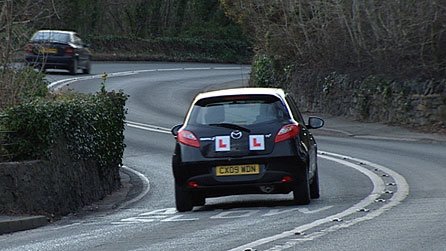Why Is The UK So Hesitant To Embrace Driverless Cars?
The driverless car is in the pipeline and while some predict its widespread use isn’t far away at all, others say it’ll be many years before we’re truly being ferried around in a car where we have no input at all.
One thing is certain; we’ve already got access to features that enable the car to ‘take over’ certain functions yet the UK is proving slow to benefit from them.
How are present cars already utilising driverless functions?
There are various features – some now offered as optional extras – that help to make cars easier and safer to drive.
- Collision prevention – a facility that detects when a collision is imminent and takes remedial action by either alerting the driver or acting on its own by applying the brakes.
- Parking sensors – while you still operate the car, the sensors – sometimes in conjunction with a camera – can guide you into a space or help you manoeuvre without having to worry about bumping into something.
- Parking assistance – where the car is able to park by itself without any help from the driver.
- Driver monitoring – a system that keeps tabs on how alert the driver is by measuring if the car is drifting – say into another motorway lane – or if the driver is showing signs of drowsiness. If so it will alert them and, in some cases, take over functions such as braking.
There’s also other technology that performs vital functions for the driver. For example, ABS (Anti Lock Braking) works out how often to apply and re-apply the brakes to prevent them locking up; all the driver does is press the brake pedal.
The UK is reluctant to use it
Leading volume manufacturer Ford conducted a recent survey of new car buying trends and found that, while barely one in five UK buyers opted for automatic parking assistance, some one in three cars sold across the rest of Europe had it fitted.
Other aids, such as those keeping you in the right lane and collision prevention technology, are popular in countries such as Norway and Sweden with more than 50% of buyers looking to make use of them, compared to a lowly three percent in the UK.
Why is this?
It may have something to do with much of the recent driverless technology being safety-related. While countries such as Sweden and Norway have a strong safety culture, often due to the adverse weather their drivers have to deal with (manufacturers from these countries such as Volvo and Saab have historically majored on safety) drivers in the UK do not have this cultural link.
A survey conducted in late 2014 by industry field research consultancy Future Thinking found that the car’s safety rating and features came as low as eighth in the major ten buying considerations of 1,200 car buyers surveyed.
The UK car buyers’ concerns
It seems a UK car buyer is more likely to specify, say, a Bluetooth module as an optional extra rather than pay for safety extras such as side airbags. Perhaps UK drivers don’t have full confidence in the technology? The same survey found that – when it came to driverless car technology – malfunctions, not being in control of the car and unproven technology were concerns for many.
As a nation we’re simply more cynical and wary of embracing changes that feel untested. Maybe we’re right to question the benefits of driverless technology, however. It appears that there may well be a need for human beings to learn the rules of the road and how to handle a vehicle even after autonomous cars are on the road – stepping in to take over if and when the technology fails us. It’s debatable whether we’ll ever fully let go of the controls of our cars.
Road safety is a big hurdle for driverless cars to clear – until conclusive evidence is put before the British people, they’re likely to continue to be cautious. Perhaps it’s actually safety concerns – rather than a lack of them – that lies behind a continued hesitancy?
Category: Travel







